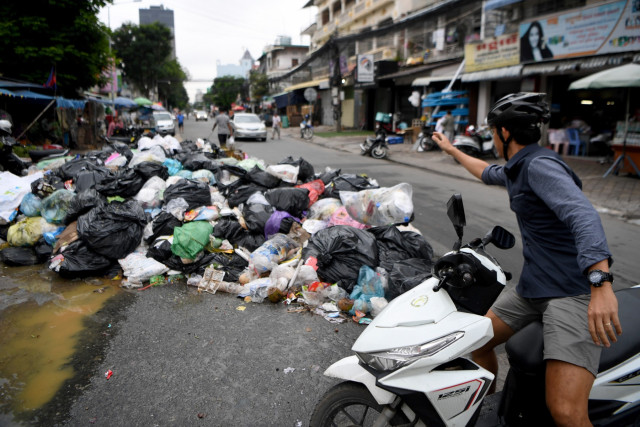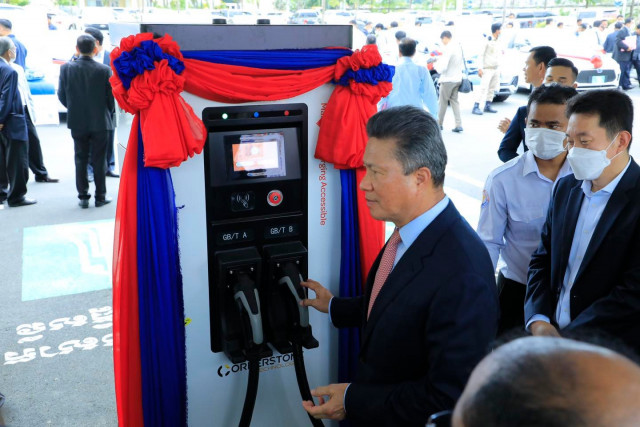Phnom Penh’s Trash Collection Budget Is in the Red as Many People Fail to Pay their Fees

- By Nhoek Samoun
- and Te Chhaysinh
- April 2, 2023 6:40 PM
PHNOM PENH — The Phnom Penh administration is urging people in the capital to pay their trash collection fees and sort the trash, as the local authorities are short $500,000 every month to pay the trash-collection company.
As an official from the municipal authorities said on March 30, the city is losing money on garbage collection because people are not paying for the service as they should, the Cambodian government having decreed that people pay for trash collection on a voluntary basis.
“The amount needed to pay garbage collection companies is about $1.8 million per month, but only about $1.3 million was collected, and the [Cambodian government] has lost roughly $500,000 per month,” said the official who preferred not to be named, to make up for the shortage of money. The funds for garbage collection in the capital are provided by the Cambodian government, the official explained.
Appealing to people in Phnom Penh, the official urged them to assist the government authorities by paying their trash collection fees, assisting in the storage of garbage, correctly classifying wet and dry garbage, and disposing of garbage at the time set by the authorities.
Heng Kimhong, an environmentalist and advocate, agreed with the official that sorting out wet and dry garbage is important to help maintain and improve public health and the beauty of the city. Whether or not people know what is wet or dry garbage, it’s hard to do without separate trash cans to do so, he said. “The government should increase the number of garbage bins [to help] separate wet and dry trash,” Kimhong said.
Moreover, he said, “[t]he government should call on all [in the] public and private sectors to raise awareness at schools and public places to [help people] understand the issue.”
In the capital, there are two sources of trash: the trash produced by industries, which falls under the jurisdiction of the Ministry of Environment, and the trash from human consumption that is handled by the Phnom Penh administration.
The khan (the equivalent of districts in the capital) authorities have been given direct control over the management of garbage collection and disposal by the Ministry of the Environment.
As a result, five khans, that is, Daun Penh, Prampi Makara, Chamkar Mon, Boeng Keng Kang, and Tuol Kork must dispose of garbage between 6 p.m. and 9 p.m. as trash is collected from 9 p.m. to 5 a.m. In the other khans, trash collection times vary, set by the authorities and the company handling the collection.
Net Pheaktra, spokesman for the Ministry of Environment, said during an interview at a conference on the results of environmental work in 2022 that Cambodians produce more than 4 million tons of garbage per year, of which 10-to-15 percent is solid waste. Cambodia produces more than 10,000 tons of garbage per day.















